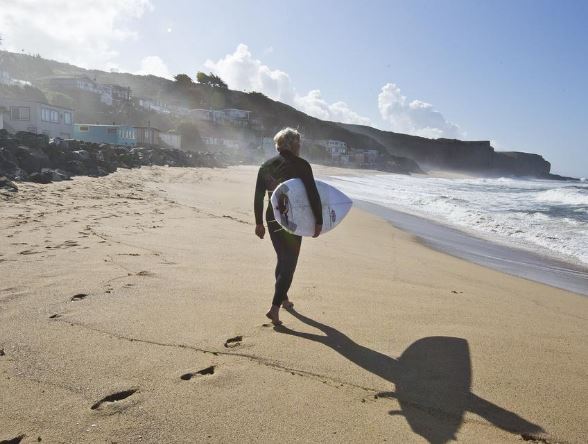Vinod Khosla, the Indian American billionaire and co-founder of Sun Microsystem is fighting case over private ownership of Martins Beach, California, for more than a year. Khosla bought the beach in 2008 in 38 million dollars deal and enforced the private property right claims by detaining 5 individuals who were passing to the beach through his property.
The Friends of Martin’s Beach, the plaintiff in the case, argued that beach is public property, because, the previous owners allowed the beach goers to use the road. But, the lawyers of Khosla argued that the previous owners charged a parking fee, which meant the property on which road exists, was in private ownership, and he allowed the use of road willingly.
“Payment of a fee to access or use property implies that such use is not a matter of right but instead is a permitted use,” the court wrote. “A party who pays for a privilege and is granted the privilege in exchange for the payment is not acting as though he or she had an unfettered right to exercise the privilege.”
Last year, Khosla filed a petition in Supreme Court of United States regarding the private ownership of the road leading to the beach, but the apex court denied hearing of the case. Previously, District Court of appeals has ruled that the beaches in the United States are protected under the California coastal act and therefore Khosla could not claim private ownership of the beach.
With the new ruling by the court, Khosla has fresh hopes to block the public access to the beach.
An enigma of our times is that China, with no tradition of free & fair elections or independent judiciary, has managed to provide economic freedom & protection to private property leading to unprecedented economic prosperity. Some lessons for us in India. https://t.co/KOwlWtLDPE
— Prof. Shamika Ravi (@ShamikaRavi) September 27, 2019
“In light of the economic slowdown, it is important to note that long-term economic growth is a consequence of individual rights to private property, and its protection from expropriation from other individuals as well as the most powerful entity, the state itself,” wrote Shamika Ravi, research director, Brookings India, and former member of Prime Minister Economic Advisory Council.
The strong protection of private property rights in United States gives us a lesson in enforcement of contracts and rule of law. Imagine owning a beach in India, the people will stage a protest against it, and soon, the government will soon snatch the private property in the name of public good. Vinod Khosla.docxType a message
India has a very poor record in the enforcement of contracts. The Ease of Doing Business (EODB) ranking of the country gets hampered due to inefficiency in ‘enforcement of contracts’. India improved its ranking only by one point to reach 163 in the enforcement of contracts in the latest report while the overall ranking was 77. As per the Economic Survey, this is ironical for a country that has long idealized contract enforcement. As Tulsi Ramayana puts it,“praan jayi par vachan na jayi” i.e., “one’s promise is worth more than one’s life”.
As India aims to achieve 8 per cent compound annual growth rate, it cannot afford to have more than 3.5 crores pending cases. The country cannot afford to have 163 ranks in the enforcement of contracts and call itself just and judicious. To become a 5 trillion dollar economy by 2024, the country needs to achieve a 100 per cent clearance rate and clear the backlog of unproductive years.
